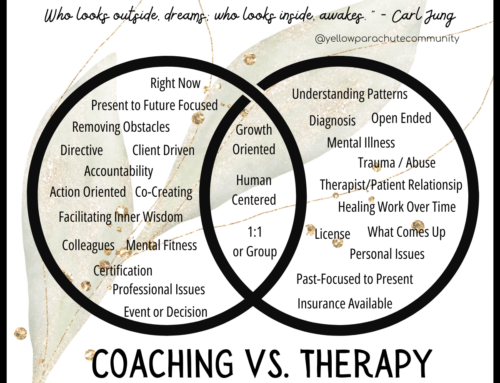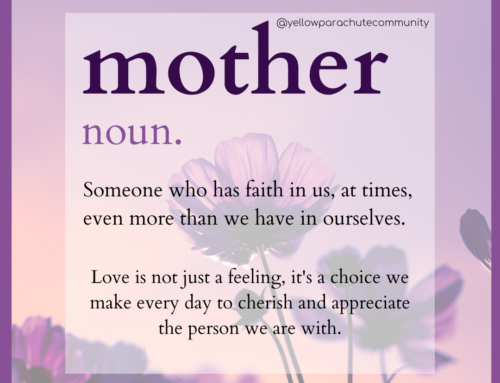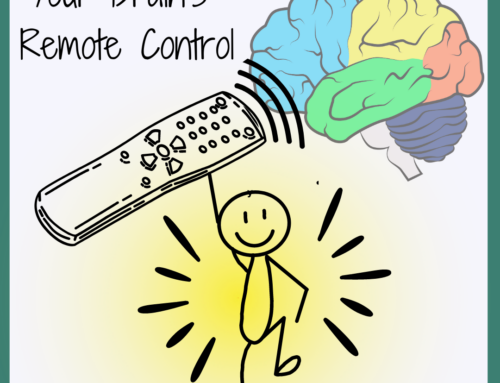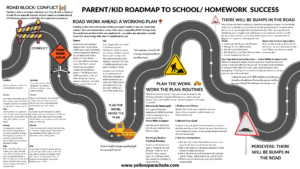It was the Night before Christmas…
And, in the spirit of Yellow Parachute and Quantum Jump, let’s relate sleep to Executive Function Skills in 5 Steps
- Let’s start with the brain. Imagine your brain as a powerful muscle that flexes to help you conquer the challenges of everyday life. We’ve used this metaphor before, right? Lifting weights, starting with light weights and getting heavier, hard work is good, you remember the idea. Well, guess what? Just like the way you sleep directly impacts your body’s physical strength and endurance, it also impacts the mental ability and efficiency of your brain’s flex to successfully navigate your day.
- As you know, Executive Function is the (not so) secret weapon behind your success in everything you do each day. Executive Function involves planning, focusing, remembering, and juggling multiple tasks like a pro. But here’s the catch: a consistent sleep schedule and enough Zzz’s are crucial to fueling executive function’s ability to help you shine.
- Picture this: With a well-rested brain, you can plan your day like a strategist. You can practice staying laser-focused on important tasks, recalling crucial information, and handling various responsibilities at once. You can regulate your emotions if something doesn’t go as planned, find creative solutions, and listen to peers and colleagues to understand their points of view.
- The alternative? Have you ever felt like you stumbled through the day, not really accomplishing anything but somehow managing to simply “get through it”? Maybe you felt extra irritable or hungry. Maybe you didn’t feel like talking to anyone, it was hard to focus in class, or you just wanted to curl up in a ball because your head hurt. Looking back on the night before, you can probably recall that you didn’t sleep well.
- In fact, though sleep is important for humans who have executive function gaps or difficulties, it is important for ALL brains to function at their best. The fact that sleep is important for ALL brains makes it a powerful and effective tool for students, teachers, parents, and all kinds of leaders across the country to focus on prioritizing!
Rest vs. RESTLESSNESS
Have you ever found yourself lying in bed, unable to fall asleep, and feeling overwhelmed by the passing time? It’s a common experience we can all relate to. The stress and powerlessness we feel in those moments only make it harder to drift off into slumber. However, sleep expert Dr. Chris Winter suggests that if we shift our focus from sleep to resting, we regain control of the situation.
Embracing Rest for Better Sleep
A Way to Practice Rest and Reclaim Sleep: NSDR
Why is NSDR Different from Yoga or Meditation?
NSDR can be appealing to individuals who struggle with quieting their minds during meditation or find it challenging to engage in traditional yoga practices. NSDR provides an alternative approach to deep relaxation by incorporating techniques such as yoga nidra and hypnosis, which guide individuals through a structured meditation or hypnotic state.
To practice NSDR on their own, individuals can use guided resources such as NSDR podcasts or deep relaxation videos. These resources provide step-by-step instructions, allowing individuals to follow along and experience the benefits of NSDR without the need for prior experience or expertise.
The practice of NSDR offers 3 key benefits to the brain:
- It can aid in promoting neuroplasticity, which is the brain’s ability to reorganize and form new neural connections. By engaging in NSDR, individuals stimulate the brain’s plasticity and create pathways that support learning, memory, and cognitive flexibility.
- Furthermore, NSDR has shown effectiveness in reducing anxiety and calming emotional stress. The deep rest achieved through NSDR helps activate the body’s relaxation response, leading to a decrease in stress hormones and a sense of calmness.It allows individuals to develop greater resilience to stress and enhances emotional regulation.
- In terms of ADHD and focus, NSDR has demonstrated positive effects.
-
- The practice promotes a state of calm and high focus, making it beneficial for individuals with ADHD who often struggle with attention and concentration.
- NSDR helps train the mind to achieve a relaxed and focused state, improving cognitive performance and reducing distractions.
Overall, NSDR offers an accessible and effective way for individuals to achieve deep relaxation, improve brain function, reduce anxiety, and enhance focus and attention, AND prepare their bodies to better rest at night.
Here’s a link to my favorite Yoga Nidra Podcast, “Yoga Nidra and Beyond,” hosted by Ayla Nova. Nova provides her episodes at no cost and offers a beautiful variety of lengths, subjects, and educational podcasts about the practice.
Please comment if you use Ayla Nova’s podcast or try NSDR. I have been using this practice for about 9 months now and notice remarkable differences in my ability to regulate my emotions, renew my mind during the day, and fall asleep at night.
How amazing would it be for a classroom of student to take a 15 minute Yoga Nidra break on yoga mats, once or even twice a day, throughout the day?
Contact us if you want to start a study, and let’s work to make it happen!







